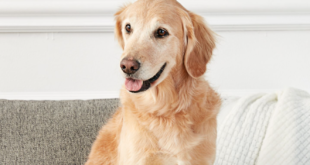Puppies are fuzzy little bundles of energy, full of curiosity and a desire to explore their world. But with their playful nature comes an inherent risk: puppy bites. While a nip from a puppy may seem harmless, it’s important to remember that they have sharp teeth and strong jaws. In fact, according to the American Veterinary Medical Association, about 4.5 million people in the U.S. are bitten by dogs each year, with a majority of those bites coming from dogs under one year old. That’s why it’s crucial to nip puppy biting in the bud before it becomes a problem. In this article, we will explore different ways to prevent and manage puppy biting, so you can enjoy a safe and happy life with your furry companion.
Table of Contents
1. Preventing Puppy Bites: A Must-Know Guide for New Dog Owners
One of the biggest challenges for new dog owners is preventing puppy bites. Puppies are playful and curious, but they can also be nippy and destructive. Here are some tips to help you prevent puppy bites and keep your pup from causing harm to others.
– Establish boundaries: From the very beginning, it’s important to establish boundaries and rules with your puppy. Teach them what is and isn’t acceptable behavior, and make sure they understand the consequences of biting or nipping.
– Socialize your puppy: Socialization is key to preventing puppy bites. Introduce your pup to new people, animals, and environments so they become comfortable and confident in different situations.
– Provide plenty of chew toys: Puppies need to chew, so make sure you provide them with plenty of safe chew toys. Avoid giving them items that resemble household objects, such as shoes or socks, which could encourage them to chew on the wrong things.
Remember, preventing puppy bites isn’t just about protecting others – it’s also about protecting your puppy. If your pup bites someone, they could face serious consequences, including euthanasia in extreme cases. By taking steps to prevent puppy bites and keeping your dog under control, you’ll ensure that everyone stays safe and happy.
2. Understanding Why Puppies Bite and the Importance of Early Intervention
One of the reasons why puppies bite is because it’s their natural way of exploring the world around them. Puppies are wired to use their mouths to investigate their surroundings and learn about their environment. However, if their biting behavior is not addressed early on, it could become a habit that’s difficult to break.
Another reason why puppies bite is because they are teething. Just like human babies, puppies experience discomfort and pain as their teeth grow. Biting and chewing on things is a way for puppies to alleviate this discomfort. However, it’s important to redirect their biting behavior towards appropriate chew toys to prevent them from damaging furniture or hurting people.
Early intervention is important when dealing with puppies that bite. It’s crucial to teach them bite inhibition so they learn how to control their bite strength and not cause harm to others. Proper training and socialization can also help prevent unwanted biting behavior. Providing puppies with plenty of toys and playtime can also help alleviate their biting tendencies. Remember, biting is a natural behavior for puppies, but it’s important to address it early on to prevent it from becoming a problem.
3. Tricks and Techniques to Curb Puppy Biting Behaviors
One of the most common issues new pet owners face is puppy biting. While it may seem harmless at first, this behavior can become a problem if not addressed properly. That’s where tricks and techniques come in handy!
Firstly, it’s important to understand why puppies bite. They use their mouths to explore the world around them, and also to relieve teething pain. However, it’s important to teach them that human skin is not an acceptable chew toy. One technique to do this is through positive reinforcement training. Whenever your puppy bites you, make a loud noise (like saying “ouch!”) and immediately offer them a toy or chew that they can bite instead. Repeat this process consistently, and your puppy will soon learn that biting is not the desired behavior.
Another trick is to redirect their attention. Keep plenty of toys and chews on hand, and whenever your puppy starts to bite you, offer them one of these toys instead. As soon as they start chewing the toy, praise them and give them affection. Another tip is to provide them with a variety of textures and hardness levels in their toys, as this will help soothe their teething pain and prevent them from seeking out human skin.
In conclusion, curbing puppy biting behaviors takes consistency and patience. Positive reinforcement and redirection are effective techniques to teach your puppy that biting is not an acceptable behavior. Remember to always offer your puppy plenty of appropriate toys and chews to satisfy their natural desire to chew. With time and practice, you and your furry friend can learn to live together happily and harmoniously.
4. From Socialization to Training: A Comprehensive Approach to Nipping in the Bud
In order to tackle unwanted behaviors in dogs, it’s important to have a comprehensive approach that begins with socialization and progresses to training. Socialization is about exposing your dog to different environments, people, and animals so that they can learn appropriate social behavior. By doing this, you can prevent unwanted aggression or fear, and create a well-rounded dog that is confident and friendly.
Once your dog is socialized, it’s time to begin training. This involves teaching your dog basic obedience commands, such as sit, stay, and come. You can also work on advanced commands like heel or tricks like shake. Training should be done in a positive and consistent manner, using rewards such as treats or praise to reinforce good behavior. By doing this, you can encourage your dog to repeat desired behaviors and reduce the frequency of undesired behaviors.
Overall, a comprehensive approach to nipping unwanted behaviors in the bud is key to creating a well-behaved and happy dog. By focusing on socialization and training, you can not only prevent future issues but also create a strong bond between you and your furry friend. Remember to be patient, consistent, and positive in your approach, and you’ll be well on your way to having a well-behaved and loving companion.
5. Staying Safe and Raising a Happy Puppy: Best Practices in Bite Prevention
Bite prevention is an essential aspect of raising a happy and safe puppy. As a responsible pet owner, it is crucial to understand the best practices for avoiding bites and keeping your puppy and those around them safe.
One of the easiest ways to prevent bites is to socialize your puppy early on. Expose them to a variety of people, animals, and situations, so they learn how to react appropriately and calmly. Introduce them to new sights, smells, and sounds, and teach them positive social skills.
Teaching bite inhibition is also vital. Encourage your puppy to play gently, and if they do bite, react immediately by saying “ouch!” and then withdrawing. This teaches them that bites cause pain and playtime stops. It is also important to avoid rough play or games that can lead to aggressive behavior. By following these best practices in bite prevention, you can raise a happy and well-behaved puppy while keeping those around them safe.
Don’t let your puppy’s biting ruin your fun – start nipping in the bud today! With a combination of training and patience, you can break the biting habit and help your puppy and family members alike enjoy a safe and happy environment.
 Treat For Dog – Brain Training for Dogs, Dog Training & Obedience Discover Treat For Dog and get your pup on the path to smarter, happier, and healthier living with brain training for dogs.
Treat For Dog – Brain Training for Dogs, Dog Training & Obedience Discover Treat For Dog and get your pup on the path to smarter, happier, and healthier living with brain training for dogs.




